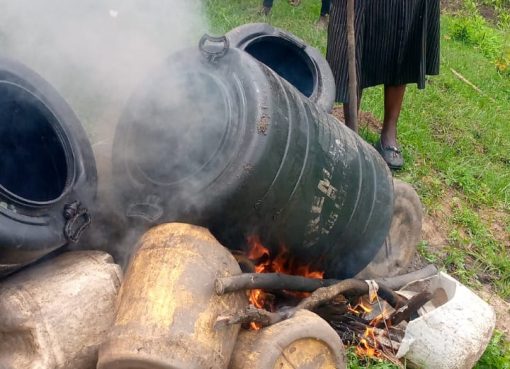Governor Josephat Nanok is seeking more funds to revamp the ailing leather industry that sources its raw material from pastoral areas in order to curb the continued importation of second hand shoes into the country.
Nanok said perennial water shortage that has characterized the region was the main challenge which continued to hurt pastoralists despite the massive economic potential.
He said unless the problem was urgently addressed, unscrupulous traders would continue to import mitumba shoes into the country whereas such quality shoes could be made cheaply due to the availability of the raw materials.
“Much as we continue talking about the realization of the Big 4 Agenda, and we do not address the lack of water which is most essential in livestock production, we could just end up chasing a red herring,” he said.
In his key address to the delegates attending the sixth Devolution Conference at the Kirinyaga University grounds, the governor said the establishment of cottage industries within the nomadic areas would certainly achieve the manufacturing agenda.
“With these industries in place, so many of our unemployed youths, once leather making cottage industries were set up within the nomadic zones, manufacturing which is one of the Big 4 Agenda will have been achieved,” Nanok said.
He said the success of the Big 4 Agenda would depend on availability of water which is their key driver, without which this will just remain wishful thinking within the Arid and Semi-arid Lands (ASAL).
“Availability of water within the ASAL areas will be a critical game changer if we are serious in the realization of all the Big 4 Agenda,” he noted.
At the same time Nanok has cited insecurity within the region as the major impediment towards the realization of meaningful development in the area.
“Physical security should be provided due to the escalating border instability as well as internal communal aggression if our people can see any tangible development in our areas,” he said.
He also cited the massive influx of refugees into the ASAL areas as a major drawback to development due to stiff competition of resources with the locals and which required urgent attention.
By Irungu Mwangi



